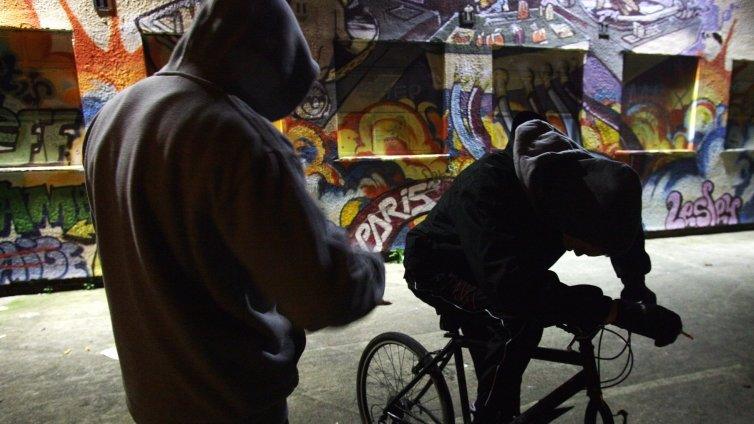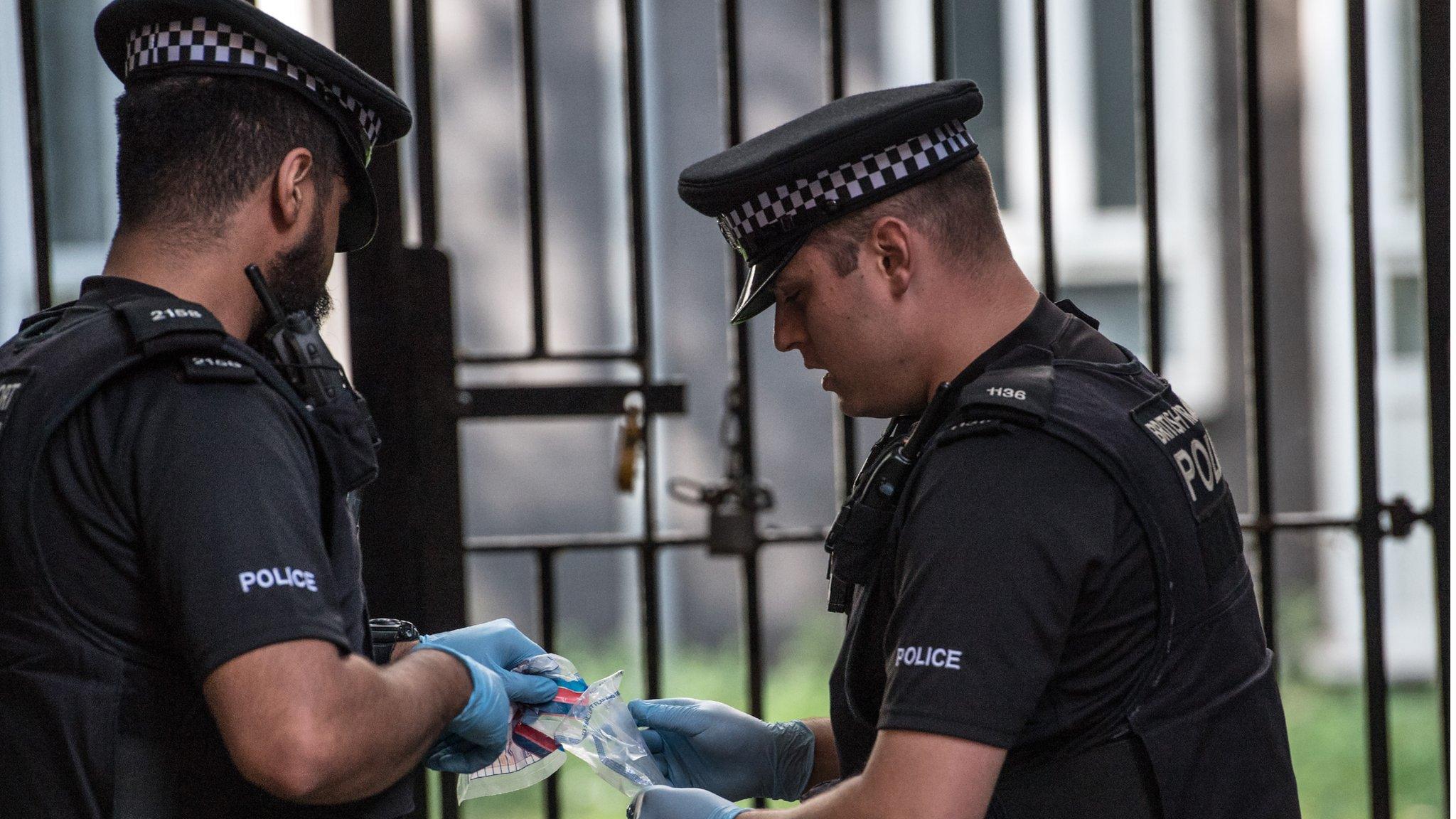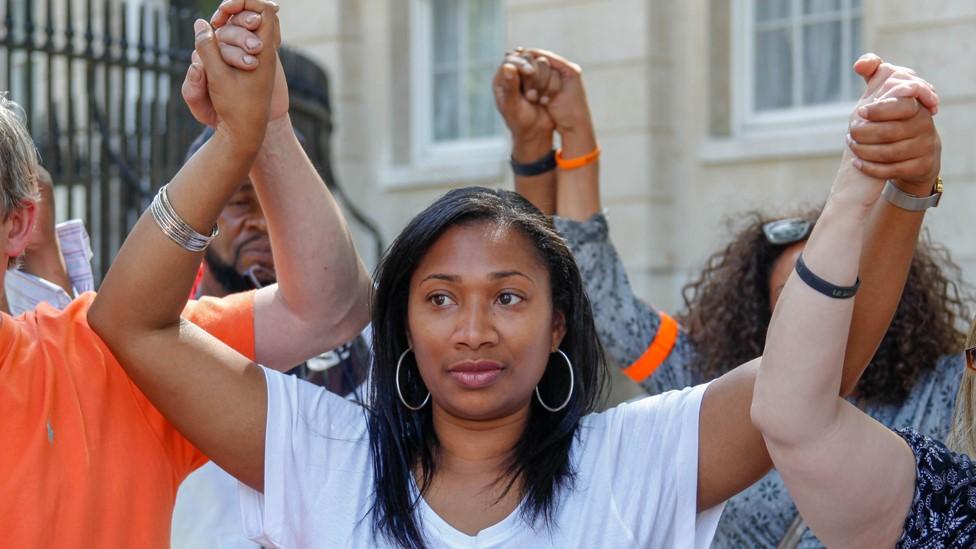Knife crime: NHS and councils to have legal duty to prevent knife crime
- Published

NHS trusts, local councils and police forces are to have a legal duty to help prevent and tackle serious violence, including knife crime.
Under plans being announced by the home secretary, public bodies in England and Wales will have to share data, intelligence and knowledge.
The public health approach will aim to promote early, targeted intervention.
The duty will apply to organisations - not individual workers - following concerns by teachers' unions in April.
The government insists the new rules will not mean "burdening" organisations.
The new duty will mean certain organisations will have to plan and collaborate to prevent and tackle serious crime.
Similar public health approaches have been used in Scotland and Wales.
New guidance will be published to help explain how different organisations and sectors, such as youth offending services, can partner with each other.
Home Secretary Sajid Javid said: "It's crucial that we all work together to understand what causes violent crime in the first place, so we can intervene early and prevent this senseless bloodshed.
"I'm confident that a public health approach and a new legal requirement that make public agencies work together will create real, lasting long-term change."
According to official figures released last month, the number of criminals caught with knives or dangerous weapons is at its highest level since 2010.
The government says it will ensure that organisations comply with the new duty through inspections or other existing mechanisms.
Potential penalties will be detailed when the legislation is introduced later.
Prime Minister Theresa May said: "We all have a role to play to tackle serious violence and stop the needless loss of young lives.
"Alongside tough law enforcement we also have to stop children being drawn into crime in the first place."
Patricia Marquis, the Royal College of Nursing director for England, said the new plan "sounds like a sensible approach" and added she was glad Mr Javid "listened" to their worries about the consequences of individual nurses being held legally responsible.

Will the plans become a reality?

The new plan is not without controversy. When the idea was first floated in April, teachers and nurses responded with both dismay and scepticism.
They worried they don't have the expertise of the police to know what to do - and it's just another layer of legal bureaucracy when they spend a great deal of their professional lives worrying about how to keep people safe.
The final proposals to be unveiled this week have been amended so that institutions such as schools - rather than individual professionals - will be monitored instead.
It's not yet clear how a system of inspections of institutions likes schools would work - and what the legal sanction would be if they were found to be coming up short.
And, perhaps more importantly, with the latest Brexit deadline looming in the autumn - and a new prime minister to be appointed before then - we don't even know for sure that these plans can even become reality.
- Published1 April 2019

- Published24 January 2019

- Published31 December 2018

- Published17 May 2019
